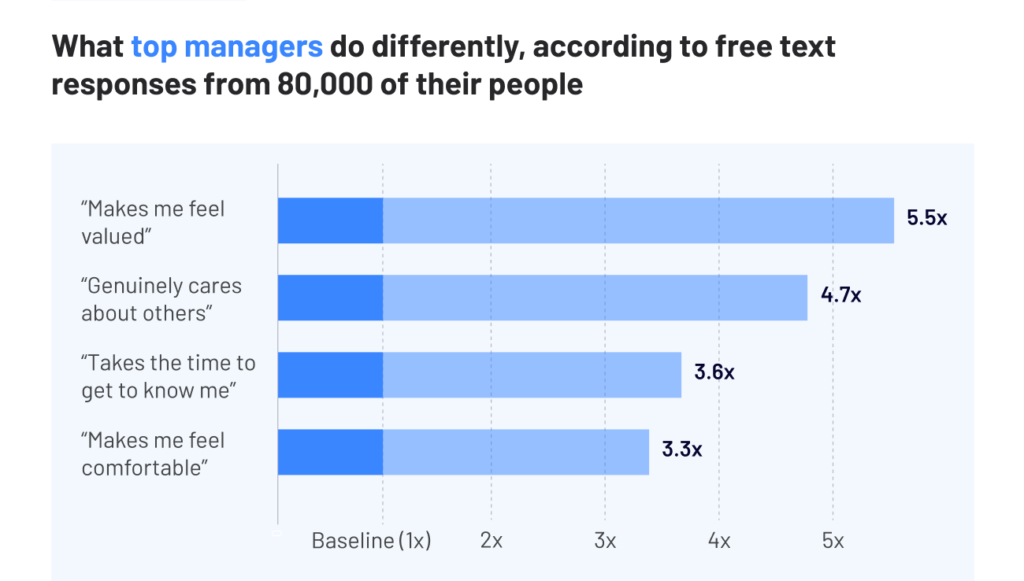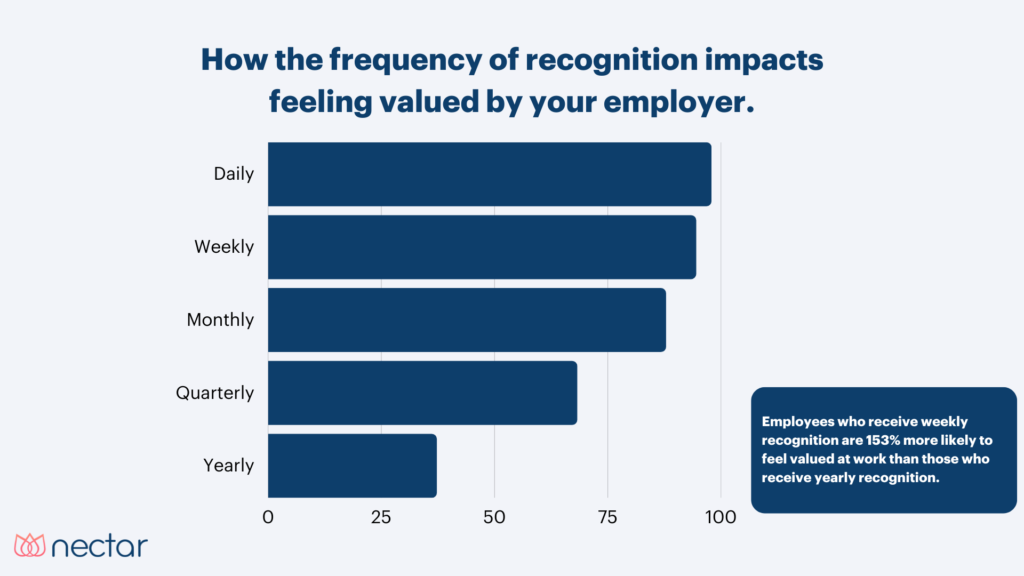By Shiela Mie Legaspi, President — Cyberbacker
Imagine you’re working on a project with a fast-approaching hard deadline, but the rest of your team seems to have dropped the proverbial ball. The only way the assignment will get done on time is if you take the initiative and make it happen yourself, so you do, and the project gets done well, on time.
Now, imagine how you would feel if no one on your team even thanked you. In a situation like this, it would be normal to feel demoralized and wonder if the rest of your team even noticed your efforts. Going further, you might question whether you should exert yourself so much in the future. If no one appreciates your conscientiousness and dedication, then why be conscientious and dedicated?
Indeed, a recent survey found that 92% of workers are more likely to repeat a specific action after receiving recognition for it. Over 40% of American employees feel that if they were recognized more often, they would put more energy into their work. This has obvious implications for organizations’ productivity and profitability.
Giving employees recognition for their performance and opportunities to provide and receive feedback is crucial for remote team management. Here, I explain best practices for using recognition and feedback to enhance remote employees’ success and ensure the productivity of your remote workforce.
The importance of providing recognition and feedback for remote workers
Providing recognition and opportunities to exchange feedback are especially important for remote employees, since they are far from the rest of their co-workers by definition. This geographic distance can translate into psychological distance.
For instance, remote workers frequently fear that the in-person team will overlook their contributions — as the saying goes, ‘out of sight, out of mind.” According to a recent study, more than half of remote workers worry about being left out of events occurring in person at the workplace, and over one-third worry about being passed over for promotions and raises.
When remote workers don’t receive proper acknowledgment of their efforts and achievements, they can easily form the impression that they are being overlooked or, even worse, taken for granted. While it might seem unfortunate, something as simple as omitting to say thank you can provide an employee with evidence that feeds a negative narrative about being excluded in the workplace.

Source: https://www.humu.com/blog/the-toll-of-workplace-anxiety-and-what-to-do-about-it
It’s a short step from there to wondering about their future at the organization. Will they get raises and promotions on the same timeline as in-person employees? Will they be given the same professional development opportunities? Will they receive mentorship and be assisted in taking on greater responsibilities?
This might strike managers as unfair, as supervisors can be extremely busy and absorbed in their own daily duties. From their perspective, it can be easy to miss the fine details of a subordinate’s activities. Team members therefore shouldn’t take such an omission personally.
Yet, the truth is that employees can still form their own, differing interpretations about what’s going on. In addition, they choose when they start looking for new work. If they are unhappy, chances are they will. According to one study, 40% of employees who left an organization listed a lack of future career development as one of the reasons for their decision.
Audit your organization’s existing practices
Your business might already provide opportunities for employees to receive recognition, but ask yourself — are people in certain roles more likely to receive public acknowledgment than others? Sometimes, organizations’ procedures for providing recognition do not accurately capture the full scope of great work that is being done.
Unequal recognition is a common problem that can cause feelings of resentment in employees who find themselves commended infrequently, while others are acknowledged on a weekly basis. Just because someone isn’t thanked doesn’t mean they didn’t do a good job. They may even have gone above and beyond their contractual obligations.

Source: https://nectarhr.com/blog/employee-recognition-statistics
That’s why it’s important to conduct an audit of your organization’s practices. To do this, track who gives and receives praise in your existing avenues for providing positive reinforcement over a set period of time, such as a month or a quarter.
Next, look for any patterns. Is anyone disproportionately doing the thanking or being thanked than others? Are people in a particular role usually doing the thanking or being thanked more than those in different positions?
While looking at these patterns, you may find that some team members have grown accustomed to dominating these conversations, and other people are routinely overlooked. Don’t assume the loudest people are actually doing a better job than the quieter ones. Some people just feel more comfortable drawing attention to themselves and their accomplishments than others.
For instance, as an article in Harvard Business Review explains, “Women are less likely than men to have learned to blow their own horn. And they are more likely than men to believe that if they do so, they won’t be liked.” The introverts on your team might actually be the highest performers.
So, how can you ensure that your remote team members get the recognition they deserve? By following a few simple guidelines.
Best practices for providing recognition to remote workers
First of all, share the information from your audit with your organization’s managers and brainstorm solutions. Should existing avenues of positive reinforcement be tweaked to become more inclusive? Should new avenues be created?
In particular, I recommend setting a goal for managers to thank their team members an equal amount. For those who are accustomed to speaking up, this may mean that they will need to rein their contributions in a bit. Toward this end, it helps to remind them that some people need space and silence in order to speak up for (or about) themselves.
Similarly, you may need to prompt other managers to offer public thanks to their teams more frequently. For these employees, it helps to explain the importance of these simple words of affirmation to their subordinates’ morale.
Since different individuals like to receive thanks in different ways, managers should also familiarize themselves with how specific team members enjoy being recognized and remain mindful of these preferences. Savvy managers also know to revisit this topic with their team members from time to time, since these preferences can change.
Next, encourage workers themselves to speak up in their one-on-ones with supervisors if they feel like their efforts are being overlooked. While no one likes to receive criticism, managers should understand this feedback to contain a valuable message. Their attention has been drawn to the fact that the employee is at risk of feeling undervalued. As a result, they can take steps to assure that person that others have noticed and appreciate their effort. They can also work to strengthen their personal relationship with that employee.
Finally, make sure every member of your organization has opportunities to give and receive recognition, as well as feedback, on a regular basis. In my experience, at least once a month is necessary.
A catalyst for engagement
Providing recognition and opportunities to exchange feedback is a catalyst for engagement in remote teams. When people feel like their hard work is seen and appreciated, this positive reinforcement makes them continue to apply themselves. When they feel like their efforts are invisible, however, the opposite happens. This has a negative impact on productivity, and with it, the whole organization’s bottom line.
To ensure your team’s success, start auditing your organization’s practices for giving recognition and feedback today.
About the Author: Shiela Mie Legaspi is an organizational development expert and the President of Cyberbacker, the leading provider of world-class administrative support and virtual assistant services from anywhere in the world to anyone in the world.